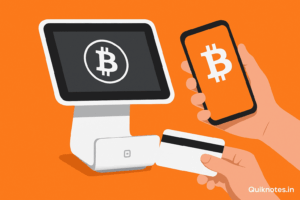Block, Inc., the fintech company led by Jack Dorsey and owner of Square, announced that it has launched a major upgrade enabling approximately 4 million U.S. merchants using Square’s point-of-sale systems to accept bitcoin (BTC) payments at checkout. The rollout leverages the Bitcoin Lightning Network to enable rapid transactions, with merchants given the option to either receive BTC or convert payments to U.S. dollars.
Key facts
- Square’s new feature allows merchants using its existing POS hardware to accept Bitcoin payments, with transactions processed via the Lightning Network for faster settlement and lower cost.
- The rollout covers all U.S. merchants on Square’s platform (about 4 million) in the coming phase, though initial availability is limited to select users before full deployment.
- Merchants have the choice to hold bitcoin received, convert to USD instantly, or offer flexible payment pathways (BTC → BTC, BTC → fiat, fiat → BTC, fiat → fiat) according to the Square announcement.
- According to some reports, Square will waive transaction fees for bitcoin payments for merchants until 2027, as part of the launch incentive.
Why it matters
- Major scale for crypto payments: With 4 million merchants potentially able to accept bitcoin, this move represents one of the largest retail-level integrations of crypto payments to date — shifting bitcoin from speculative asset toward everyday payment option.
- Legacy payment infrastructure meets crypto: The use of Square’s existing terminal hardware means minimal friction for merchant adoption—no need for entirely new devices, which accelerates real-world use.
- Lower cost, faster settlement: By leveraging the Lightning Network, Square aims to reduce processing fees and latency compared with traditional card networks — a meaningful differentiator for merchants.
- Strategic for bitcoin’s ecosystem: For bitcoin proponents, integration into mainstream commerce enhances network utility and real-world adoption, supporting longer-term thesis of bitcoin as “money.”
- Competitive pressure on payments industry: Traditional payments companies (cards, banks) may face growing pressure as crypto-enabled offerings become more ubiquitous in retail.
Challenges & considerations
- Regulatory and geographic limitations: The rollout may face state-level regulatory hurdles (for example in New York State) and will not immediately cover all regions or merchant types.
- Merchant adoption vs. opt-in: While 4 million merchants are eligible, actual uptake will depend on merchant interest, customer demand, and the convenience of settlement options (hold vs convert).
- Volatility risk and settlement preference: Many merchants may prefer instant USD conversion rather than holding bitcoin to avoid price volatility, which could limit the long-term hold case.
- Education and support burden: Merchants and customers may require education about bitcoin payments, wallets, refunds, chargeback models and dispute resolution—areas less mature than traditional card systems.
- Bitcoin transaction costs & network conditions: Although Lightning is fast/low-cost, network congestion or liquidity issues can still create bottlenecks; Square will need to manage seamless integration to ensure merchant experience isn’t degraded.
What to watch next
- Merchant uptake metrics: How many merchants enable bitcoin payments in the first 3–6 months and in which sectors (retail, food & beverage, services).
- Transaction volumes & settlement choices: Proportion of payments held in BTC versus converted to USD; average transaction size and cross-border effects.
- Customer adoption & awareness: How many customers pay in bitcoin rather than fiat, and whether the option influences merchant sales or loyalty.
- Expansion and global rollout: Whether Square extends capability outside the U.S., or to more merchant types (e-commerce, mobile) and additional currencies.
- Competitive responses: How other payment providers, banks or processors react—whether by offering crypto payment rails, matching fees, or pushing back.
Bottom line
Square’s rollout of bitcoin payments to 4 million U.S. merchants marks a significant milestone in crypto-payments infrastructure, bridging mainstream commerce with bitcoin’s native ecosystem. The integration’s success will depend on merchant adoption, settlement preferences and user behaviour—but the sheer scale means that bitcoin is now closer than ever to functioning as a retail payment option, not just a speculative asset. The payments industry is watching.
Also Check: Institutions Restart Ether Accumulation as U.S. Shutdown Hopes and ETF Optimism Reignite Demand
0E4S2W77
